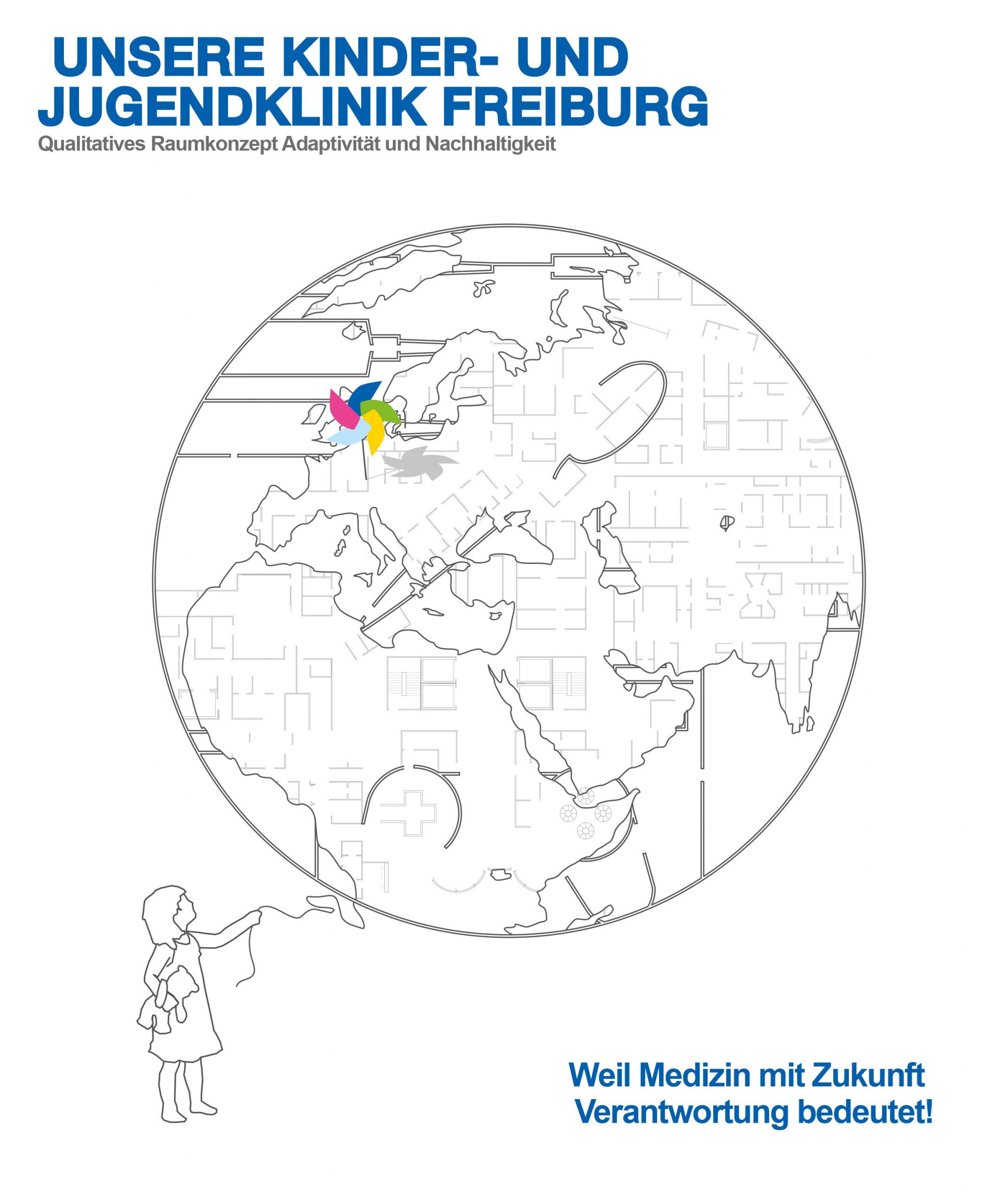BECAUSE PROMISING MEDICINE MEANS RESPONSIBILITY!

Qualitative spatial concepts (QRs) are an important addition to the conventional room program of a new building. They ensure that qualitative requirements defined by the users and operators of a building are presented in such a way that architects can understand them and integrate them efficiently into their design. QRs are of particular importance in the development of so-called evidence-based designs of buildings, i.e. design decisions that are based on scientific findings. In this process they are the indispensable and most important preliminary stage for the design. QRs are developed together with clients during the preliminary planning phase, i.e. before the building contract is awarded to an architect. Gemma Koppen and Tanja C. Vollmer describe in their 3-volume publication the QRs of the University Children’s and Youth Clinic Freiburg, which they developed together with staff, parents and children as well as the clinic management. The anthology is published under the title ‘Unsere Kinder- und Jugendklinik Freiburg. Clinic for Future!’. (2015, Freiburg i. Br.: INITIATIVE) was published. The individual volumes cover the following topics: 1. the living environment of children, adolescents and parents in the hospital, 2. the working environment of a children’s and youth clinic, 3. sustainability of a children’s and youth clinic.
